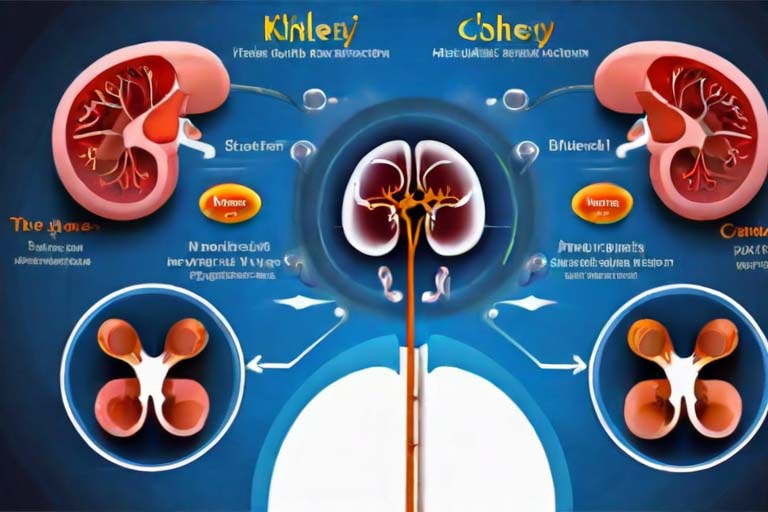

 What roles do the kidneys play in the body
What roles do the kidneys play in the body
The kidneys are vital organs in the human body that perform several important functions. Here are the main functions of the kidneys:
1. Filtration of Blood:
• The primary function of the kidneys is to filter and remove waste products, excess fluids, and electrolytes from the blood to form urine.
2. Regulation of Blood Pressure:
• The kidneys play a crucial role in regulating blood pressure by controlling the volume of blood and the concentration of sodium and water in the bloodstream.
3. Erythropoiesis Regulation:
• The kidneys produce and release erythropoietin, a hormone that stimulates the production of red blood cells in the bone marrow. This helps maintain an adequate supply of oxygen to the body’s tissues.
4. Acid-Base Balance:
• The kidneys help maintain the body’s acid-base balance by excreting hydrogen ions and reabsorbing bicarbonate ions, helping to regulate the pH of the blood.
5. Electrolyte Balance:
• The kidneys regulate the balance of various electrolytes, such as sodium, potassium, calcium, and phosphate, in the body. This is crucial for maintaining proper nerve and muscle function.
6. Fluid Balance:
• By adjusting the amount of water reabsorbed or excreted in the urine, the kidneys help maintain a proper balance of fluids in the body. This is essential for preventing dehydration or fluid overload.
7. Waste Elimination:
• The kidneys eliminate metabolic waste products and toxins from the body through the production of urine. This includes substances like urea, creatinine, and ammonia.
8. Detoxification:
• The kidneys play a role in detoxifying the body by filtering out various harmful substances, drugs, and toxins from the bloodstream.
9.Glucose Regulation:
• The kidneys help regulate blood glucose levels by reabsorbing glucose back into the bloodstream during the filtration process. They also play a role in gluconeogenesis, the production of glucose from certain amino acids and other precursors.
10. Activation of Vitamin D:
• The kidneys convert inactive vitamin D into its active form, which is essential for the absorption of calcium and phosphate in the intestines, promoting bone health.
Maintaining the proper functioning of the kidneys is crucial for overall health, and any impairment in their function can lead to various health problems. Regular medical check-ups and a healthy lifestyle contribute to kidney health and overall well-being.